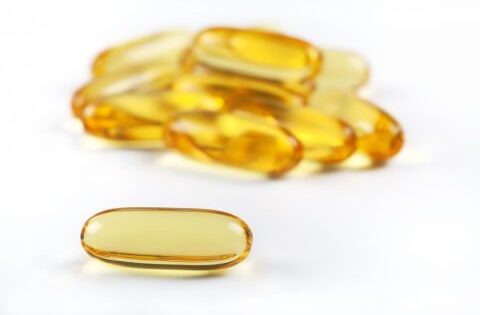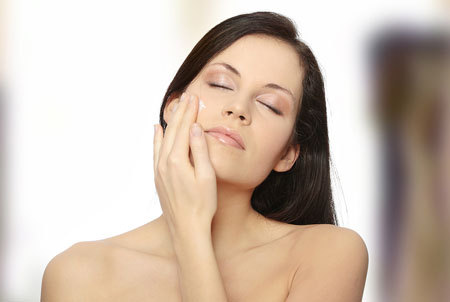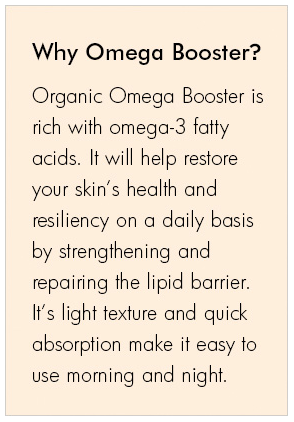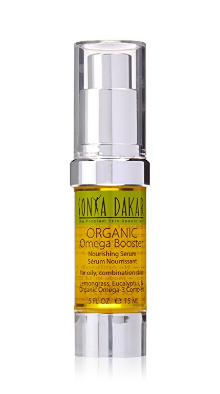When people think about skin care, consumer products are generally the first things that come to mind. While there some excellent skin care products on the market today, the solution to your skin care problems cannot always be solved with the latest and greatest products.
While these products do have their place, there are certain things you can do on your own to ensure that your skin is healthy and beautiful. And essential fats could be a good consideration. These are fats that your body cannot live without because they assist in the creation of cell membranes, hormones, and other such chemicals needed for optimal health.
When it comes to fats, its important to make sure your body gets the right ones. Too much bad fat in your diet will result in increased lethargy and long term health issues. A vital set of nutrients required for a healthy body, are the fatty acids.
You’ve probably heard the terms “fatty acid” and “omega 3” before, but do you know what a fatty acid is or why your body needs it?
Fatty acids are important for all systems of the body to function normally, including your skin, respiratory system, circulatory system, brain and organs. However, not all fatty acids provide the same benefits. Unfortunately, many diets include unhealthy levels of Omega 6’s which are traditionally derived from fried foods, vegetable oils, fake butter products, grain-fed animal fat and other modern convenience and processed foods.
According to research as well as my own experience consuming foods rich in omega-3 fatty acids may lead to smoother, younger-looking skin with a visible reduction in inflammatory skin conditions like acne and psoriasis. These fats are especially abundant in cold water fatty fish such as sardines, salmon, mackerel, tuna, anchovies, and black cod, among many others. (2)
MDs Perricone, Mayoral, Tornambe and skincare therapist Ildi Pekar agree the skin benefits of omega-3 fatty acids, besides their amazing overall systemic benefits, are rejuvenating food for the face, taken internally as well as applied topically.
Here’s what NYC plastic surgeon Robert Tornambe, M.D., has to say about omega-3’s benefits.
Omega-3 fatty acids, also known as polyunsaturated fatty acids (PUFA), are essential fatty acids, which are substances that the body cannot manufacture. They are vital to the human body function, and must be acquired through food. They play a crucial role in brain function, as well as normal growth and development.
Numerous studies have demonstrated the benefits of omega-3 fatty acids for the heart, decreasing the risk of heart disease. Other benefits include reduction of inflammation and may help lower the risk of chronic diseases such as diabetes, cancer and arthritis. They also favorably affect the skin.
Sign Up For Our FREE Inner Circle Membership & Receive Exclusive Natural Health Information
Skin benefits from omega-3 fatty acids involve the epidermis, the skin’s outer layer. As we age, the cells become thinner and less sticky. This decreases the barrier function of the epidermis allowing moisture to be released from the skin, causing dryness. Also as epidermal cells start to decrease, the skin slowly loses its ability to repair itself efficiently. Simultaneously, the structural elements that support the skin start to thin. All of these changes promote wrinkling.
Omega-3 fatty acids bolster the skin cell membrane of the epidermis. The skin cell membrane is the outer layer of the cell and it monitors the intake and disposal of nutrients and waste products entering and leaving the skin cell. The skin cell membrane also influences the ability of the cell to hold onto water. Therefore, if the skin cell holds onto water, it leads to moister, softer skin, which in turn promotes wrinkle prevention and may eradicate existing mild wrinkles. Omega-3 fatty acids contribute to the upkeep of the skin cell membrane, improving the texture and quality of skin.
The sun’s ultraviolet light increases the aging process of the skin. Research has demonstrated that omega-3 fatty acids can play a role in decreasing skin damage from UV light and the production of cancer cells caused by the UV light. It has also been shown to contribute to wound healing because of anti-inflammatory properties. It has been used to treat atopic dermatitis, psoriasis and acne.
Omega-3 fatty acids are found in fish like salmon and mackerel, algae, krill, and certain plants and nut oils. Since these fatty acids have so many benefits for the skin, it seemed only logical that topical application in the form of a face cream could have even greater benefits.
Omega-3 derived from fish oils became problematic in face creams because of the unmistakable and less than desirable fishy odor. Impurities, such as mercury, can also be present in omega-3 derived from fish. For these reasons, anti-aging facial creams are being developed with omega-3 derived from algae and or plants. After all, the fish get their omega-3 supply from eating algae.
Research documents show that dietary supplementation with omega-3 fatty acids provide benefits to skin quality and its aging process. Logic would tell you that if it’s good for you skin from the inside, it’s probably helpful from the outside too. That logic would be right because this facial application leaves your skin soft and glowing. It appears that facial creams containing these fatty acids deliver the ingredient directly to the target, and provide similar benefits.
Among skin applications with fatty acid for topical use I have a couple of favorites: the Organic Omega Booster (for DRY and OILY skin) because it's quite easy to see the results on my face and complexion. It’s made of organic flax seed oil and essential oils of chamomile and lavender. It has amazing anti-bacterial and anti-inflammatory properties.
It would be great experiencing the possible benefits of combining topical and dietary omega-3 fatty acids with regard to skin health and aging.
The fatty acids in fish oil supply hydration to your skin and help with inflammation.
"Taking any kind of fish oil is like putting oil in your engine to run smoothly," says Pekar."Fish oil is great for your heart and health but especially your skin, reducing acne and warding off wrinkles."
Dr. Mayoral agrees, adding that most dermatologic literature points to two properties of fish that help us out. Omega-3 fatty acids have anti-inflammatory properties while low-glycemic foods like fish benefit people with psorasis, non-melanoma skin cancer and melanoma.
Increasing dietary omega-3 fats is an important step towards healing the skin. High levels of omega-3 fatty acids have been shown to decrease inflammation, and may reduce the risk of acne and other skin problems by decreasing insulin-like growth factor (IGF-1) and preventing hyperkeratinization of sebaceous follicles. (5)
Noted author, dermatologist Dr. Nicholas Perricone, feels the same. Claiming his “face-changing” foods can visibly change the way you look in just 72 hours, in an interview on medicinenet.com, including his “Three-Day Diet for Better Skin,” he points out the anti-inflammatory benefits of salmon feeding the skin from within:
“The first important item in this anti-inflammatory meal is salmon. Salmon is important because it is high in protein and we need protein to repair our cells. It has been my experience in my practice that women tend not to have protein-adequate diets, and this results in accelerated aging. In addition, salmon contains high amounts of an essential fatty acid classified as an omega-3 oil. Omega-3 oils are powerful, natural anti-inflammatories that nourish the brain and therefore can alleviate mental depression, nourish the immune system, and therefore help prevent infection and cancer. And essential fatty acids nourish the skin, giving it a radiant and beautiful appearance.”
And if you don’t like the taste of salmon, he suggests taking fish oil capsules for the omega-3 oils.
One of the products that's worth checking out is Omega Whole Earth and Sea - Marine Algae-3 Vegan Omega-3 (complete VEGAN source of Omega-3-6-9) 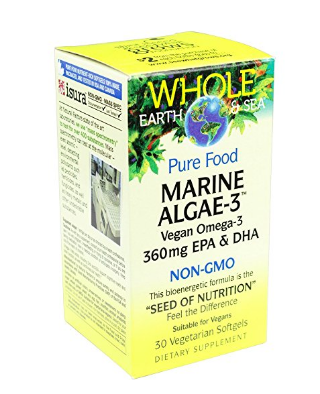 combines omega-3 fatty acids obtained from the sea, kalparine algae and the land, Echium seed oil, both rich sources omega-3, 6 and 9 fatty acids.
combines omega-3 fatty acids obtained from the sea, kalparine algae and the land, Echium seed oil, both rich sources omega-3, 6 and 9 fatty acids.
Evaluations from consumers selected to try the product included improvement in skin firmness, tonicity and hydration level. 66.7 percent reported perceived smoother skin texture.
Fish oil is best taken orally so your body can extract the omega-3s to achieve healthy, beautiful skin and hair. In any case, omega-3 fatty acids should be incorporated into your anti-aging armamentarium.
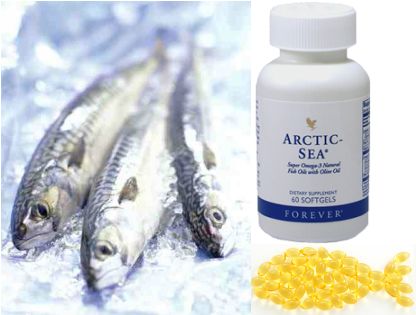 If you consider getting one of the best quality Omega 3 fatty acid/fish oil supplements, check the Forever ARCTIC SEA - Omega 3,9 as a combination of fish and olive oils in its natural form is considered a supplement to modern diet. By combining Omega-3 with Omega-9, it provides a safe and balanced supplement that can favorably support healthy blood cholesterol and triglyceride levels.
If you consider getting one of the best quality Omega 3 fatty acid/fish oil supplements, check the Forever ARCTIC SEA - Omega 3,9 as a combination of fish and olive oils in its natural form is considered a supplement to modern diet. By combining Omega-3 with Omega-9, it provides a safe and balanced supplement that can favorably support healthy blood cholesterol and triglyceride levels.
Arctic-Sea Super Omega is a breakthrough in terms of a balanced supplement, using both vegetable and fish oils to derive the benefit of each. I use this product daily and endorse it gladly - you can read here WHY.
Sources and Referances
1. http://www.huffingtonpost.com/2015/02/10/fish-oil-benefits-skin-hair_n_6639850.html
2. http://www.med.umich.edu/umim/food-pyramid/fish.html
3. http://umm.edu/health/medical/altmed/supplement/omega3-fatty-acids
4. https://etd.ohiolink.edu/pg_1?0
5. http://onlinelibrary.wiley.com/doi/10.1111/j.1365-4632.2009.04002.x/full
6. http://www.lifeextension.com/protocols/health-concerns/chronic-inflammation/Page-01
You may also like:
Anti-Aging Technology or the Benefits of Healthy Lifestyle –Your Choice
Free Radicals: Enemies Within. What Are They And How Are They Formed
How Does Food Affect Our Skin?
